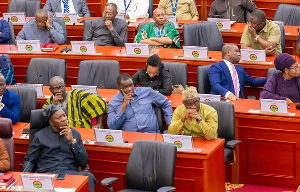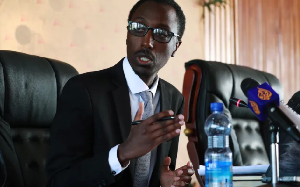The Africa Centre for Energy Policy (ACEP) has confronted Government on the variation between the projected taxes of US$55 million and the outturn of US$172 million as at September 2013.
According to the energy think-tank, the discrepancy cannot be attributed to the revenue agencies’ inability to collect the taxes during the 2011 and 2012 fiscal years but rather due to the weaknesses in assessing the tax-paying position of oil companies.
It said though Ghana has entered the high revenue period as a result of increase in corporate taxes, oil companies are left to conduct their own self-assessment without any serious audit.
In a press release, ACEP said, “Government uses their assessment to determine tax liability. The trend in oil producing countries is to use the services of professional audit firms to assess and audit tax liability of oil companies and we encourage the government to do same.”
Mohammed Amin Adam, Executive Director of ACEP, noted that “the inefficiency of spending oil revenues has characterized the last three years where oil revenues from the ABFA were distributed thinly across so many projects none of which could have been completed within scheduled periods.”
He said ACEP has consistently complained about the foregoing and that such projects had suffered overrun times and costs.
“We are therefore excited that Government has decided to change direction by stating in the budget that “the 2014 ABFA expenditure will be devoted to only a few capital projects to increase efficiency and effectiveness.
“We also wish to express our satisfaction with the new initiatives announced by the Minister in the Budget for improving oil revenue management. These include the introduction of capital gain tax in the oil and gas sector in line with Section 95(1) of the Internal Revenue Act 2000 (Act 592) and the decision to open a sub-consolidated Fund to receive the ABFA to improve tracking and accountability.”
Business News of Tuesday, 26 November 2013
Source: Daily Guide
ACEP faults gov’t on tax discrepancies

Opinions











